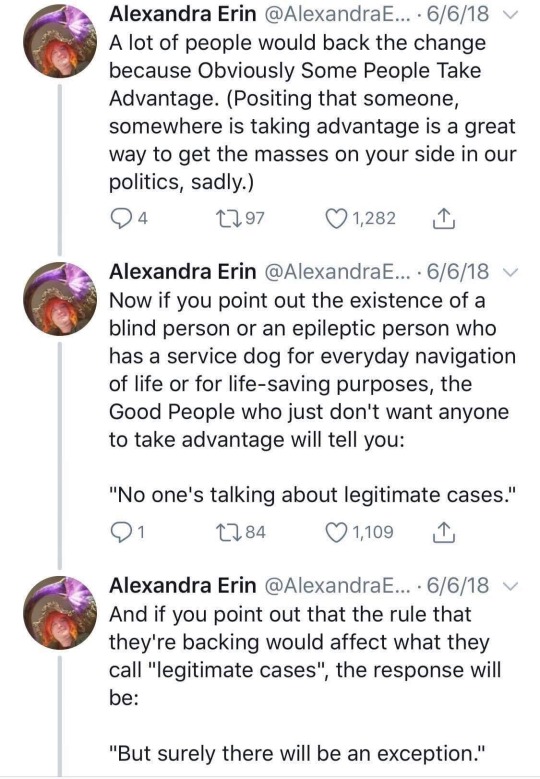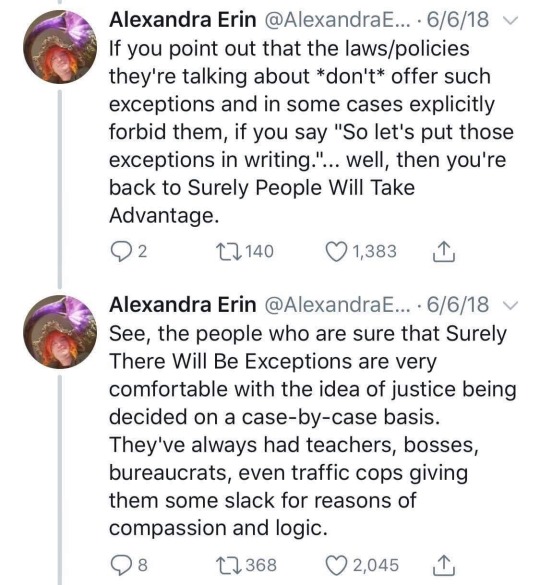sideblog to msilverstar, spamming miscellaneous stuff
Last active 60 minutes ago
Don't wanna be here? Send us removal request.
Text
"reject modernity embrace tradition" isn't even a dogwhistle it's literally just saying regressive ideology directly. how does anyone not get this
20K notes
·
View notes
Text
Do kids today even understand why podcasts are called podcasts?
202K notes
·
View notes
Text
I love the x-men so much because that's just what leftist infighting is like! that's literally all it is! xavier is a sellout and they all hate him but he's the only one with any money. everyone complains about "they keep switching sides and dating each other it's so fucking confusing" like my dudes have you never been a part of any socialist organisation, ever. then people will go "magneto is so strong how has he not killed a bunch of teenagers" HE DOESN'T WANT TO KILL THEM! this started in a goddam basement over coffee he does not want to hurt them he just wants them to shut up and listen and will fling cars to do so
131K notes
·
View notes
Text
youtube
If you liked seeing Gold Ship(JPN) running up the outside, you may enjoy this!


Hollie Doyle and Scarlet Dragon (GB)! Winning from second-to-last in the home stretch in 2020.
"Scarlet Dragon is a strong old traveller, and you need that horse underneath you to do those kind of manoeuvres, especially at this track, so I was lucky.”
237 notes
·
View notes
Text
https://archiveofourown.org/works/66992527
Y'ALL THIS IS THE COOLEST FANFIC I'VE EVER SEEN.
It is a complete narrative about SecUnits on a Planetary Survey trying to communicate and keep their clients safe while dealing with the restrictions of their govmod.
IT IS ALSO A FULLY INTERACTIVE GAME OF MINESWEEPER.
The story is told BY PLAYING MINESWEEPER.
This fic is criminally underrated go look at it!!!
8K notes
·
View notes
Text
Waking up from your decade long enchanted sleep to learn that, not only is sharing your True Name with the fae okay now, but there's actually a rule against using a false name when entering the faerie market.
Your friends admit that this causes some problems— it's way easier to fall victim to a false deal, or get stolen away now— but everyone goes to the fae market to buy their goods so what are you gonna do? Not see your friends? Go out of your way to buy more expensive stuff from the human market? Yeah right.
Also yes they still perform their light-footed fluttering dances under the silvery light of the full moon, but in order to get in you have to first watch the dancers perform two short plays about why you should shop at certain local businesses. Also if you want to talk about the performance afterwards then you need to trade them your True Name, your home address, your date of birth and your personal interests.
You do this so that the fae can this information on a scroll and give it to local business owners.
Another part of the deal they broke is that nobody may talk negatively about those businesses within the market walls. In fact, your friends say, the enchantment is so effective that it's very difficult to talk negatively about anything at all.
“I know it sounds un-good,” your friend admits. “But there are loopholes.”
“In retrospect,” another friend says, “I wish the town had voted un-yes to teaching the fae about money.”
“On the plus side,” the first friend says, “I hear the market is investing in one of those enchanted statues that responds to questions with deliberately ambiguous riddles, so long as you trade it your memories of secondary school.”
“Oh, cool. Is that why they're burning down the library?”
You wonder if it's too late to go back to sleep.
7K notes
·
View notes
Text
I saw a sign at a nearby village advertising a "veillée", a storytelling evening, which sounded intriguing, so I went out of curiosity—it turned out to be an old lady who had arranged a circle of chairs in her garden and prepared drinks, and who wanted to tell folk tales and stories from her youth. Apparently she was telling someone at the market the other day that she missed the ritual of the "veillée" from pre-television days, when people would gather in the evening and tell stories, and the people she was talking to were like, well let's do a veillée! And then she put up the sign.
About 15 people came, and she sat down and started telling us stories—I loved the way she made everything sound like it had happened just yesterday and she was there, even tales she'd got from her grandmother, and the way she continually assumed we knew all the people she mentioned, and everyone spontaneously played along; she'd be like "And Martin, the bonesetter—you know Martin," (everyone nods—of course, Martin) "We never liked him much" and everyone nodded harder, our collective distaste for Martin now a shared cultural heritage of our tiny microcosm. She started with telling us the story of the communal bread oven in the village. The original oven was destroyed during the Revolution; people used to pay to use the local aristocrat's oven, but of course around 1789 both the aristocrat and his oven were disposed of in a glorious blaze of liberty, equality, and complete lack of foresight.
Then the villagers felt really daft for having destroyed a perfectly serviceable oven that they could have now started using for free. "But you know what things were like during the revolution." (Everyone nodded sagely—who among us hasn't demolished our one and only source of bread-baking equipment in a fit of revolutionary zeal?)
The village didn't have a bread oven for decades, people travelled to another village to make bread; and then in the 19th century the village council finally voted to build a new oven. It was a communal endeavour, everyone pitched in with some stones or tools or labour, and the oven was built—but it collapsed immediately after the construction was finished. Consternation. Not to be deterred, people re-built the oven, with even more effort and care—and the second one also collapsed.
People realised that something was amiss, and the village council convened. After a lot of serious discussion, during which no one so much as mentioned the possibility of a structural flaw, people reached the only logical conclusion: the drac had sabotaged their oven. Twice. (The drac, in these parts, is the son of the devil.) The logic here, I suppose, was that no one but the devil's own child would dare to stand between French people and their bread.
The next step was even more obvious: they passed around a hat to raise money, assuming the devil’s son was after a cash donation. But (and I'm skipping a few twists and turns of the story here) the son of the devil did not want money, he wanted half of every batch of bread, for as long as the village oven stood. Consternation.
People simply could not afford to give away half of their bread, and were about to abandon the idea of having their own oven altogether—but then Saint Peter came to the rescue. (In case you didn't know, Saint Peter happens to regularly visit this one tiny village in the French countryside to check that its inhabitants are doing okay and are not encountering oven issues.) Saint Peter reminded them of one precious piece of information they had overlooked: holy water burns the devil.
People re-built the oven, for the third time. The son of the devil returned, to destroy it and/or claim his half of the first batch—but on that day, the villagers had organised a grand communal spring cleaning, dousing every street and alley in the village with copious amounts of holy water. The poor drac simply could not access the oven; every possible path scorched his feet for reasons he couldn't quite explain. So he was standing there, smouldering gently and wondering what was going on, when some passing tramp seemed to take pity on him, pointed at his satchel and told him to turn himself into a rat and jump in there, and the tramp would carry him where he wished to go. The devil's son, probably a bit frazzled at this point, agreed without much thought, became a rat and jumped in the satchel, and of course that's the point when everyone in the village sprang from the shadows, wielding sticks, shovels, pans, and started beating the devil's son senseless. (Old lady, calmly: "You could hear his bones crack.") So the son of Satan slithered back to Hell and never returned to destroy the village oven again—and the spring cleaning tradition endured; the streets were washed with holy water once a year after that, both to commemorate this glorious day of civic resistance when the village absolutely bodied the devil's offspring and to maintain basic oven safety standards. (Old lady: "But we don't bother anymore… That's too bad.")
She told us five stories, most of them artfully blending actual local events or anecdotes from her youth with folk tale elements, it was so delightful. She thanked us for coming and said she'd love to do this again sometime. I went home reflecting that listening to an old lady happily tell stories of dubious historical veracity involving the Revolution, property damage, demonic mischief and baffling municipal decision-making is literally my ideal Saturday night activity.
12K notes
·
View notes
Text
I think venus flytraps should be intelligent and ambulatory. I think they should get into the cupboards. I think they should purr when you pet them.
88K notes
·
View notes
Text

I've rarely seen a more validating sentence in my entire life.
354K notes
·
View notes
Photo

Long before the introduction of color film, a Russian chemist and photographer named Sergey Prokudin-Gorsky used an innovative technique. He took three individual black and white photos, each through a colored filter (red, green, and blue), to create fully colored, high-quality pictures. The photo of this woman, taken by him, is around 107 years old!
42K notes
·
View notes
Text
occasionally I am struck dumb by the sublime beauty of the world in the small moments, you know?
egg

96K notes
·
View notes























